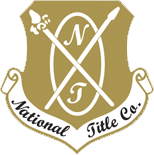The closing itself takes about one hour and tends to be rather busy with much to be done and many details to be coordinated. During the closing, numerous documents must be explained and signed, funds must be received and disbursed, last minute questions on the condition of the property and operation of systems must be answered and the keys must be delivered. In many instances, buyers need to coordinate settlement with the arrival of their movers and cannot afford any delays. Choosing a reputable, experienced title company is crucial to a smooth settlement.
A title search is done to ascertain that the property you are purchasing has a free and clear title. All of this information, combined with the documentation your lender requires, makes up your closing package. Some of the documents are:
1. SETTLEMENT STATEMENT (Also called a HUD-1)
Document often referred to as the “HUD 1” summarizes the financial aspects of the transaction. Its review is often the focal point of the closing. Basically the “HUD 1″ translates the terms of your contract of sale and mortgage commitment into numbers, and acts as a balance sheet for an accounting between the buyer and the seller. Unfortunately, because settlements occur very soon after loan approval, final settlement sheets and estimates of actual closing costs are rarely available for review prior to settlement. However, you should be able to get a fairly accurate estimate of your costs before settlement day from your real estate agent and mortgage lender.
You will need to bring a certified or manager’s check in the amount of your estimate to settlement; most settlement agents will accept a personal check for any additional funds due or will issue you a refund check.
2. MORTGAGE
A document that pledges property as collateral for a debt without transfer of title, or possession.
3. MORTGAGE NOTE
Your commitment to pay the mortgage loan. The terms of the loan are fully explained – the amount of your payment, when it is due, the duration of the loan and the interest rate.
4. WARRANTY DEED
The Warranty Deed is an instrument to transfer title to the property upon sale.
5. AFFIDAVITS
Affidavits are declarations from both the buyer and seller as to the truth of the information provided and that nothing has changed since the application date.
6. TRUTH IN LENDING
Shows the Annual Percentage Rate (APR) of your loan.
7. MISCELLANEOUS DOCUMENTS
Both the lender and title company have some specific documents to be signed by buyers and sellers. These include property tax proration, forwarding addresses, etc.
INFORMATION YOUR TITLE COMPANY WILL NEED
- Copy of Real Estate Sales Contract
- Buyer’s and seller’s full names, addresses and phone numbers
- Name of mortgage lender, name and phone number of loan officer
- Seller’s current mortgage lender and loan number
- A copy of the prior title policy
- The name and addresses of homeowners/condominium association
- Social Security numbers of all parties
This Information was provided by North American Title Company. Read the full article at: http://www.natic.com/.
